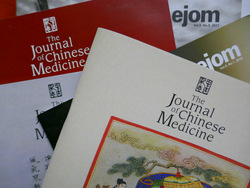 A significant amount of research is based on randomised controlled trials. This means that a patient group has been divided randomly into two or more arms. One arm was given the treatment being tested, and the other was given a supposedly inactive placebo; the latter constitutes the “control”. This trial design was originally developed to test new drugs. The placebo tablet can be a pill made from something inactive and unrecognisable to patients. (It soon became apparent that big yellow pills appeared to be a more powerful placebo than small white ones….)
A significant amount of research is based on randomised controlled trials. This means that a patient group has been divided randomly into two or more arms. One arm was given the treatment being tested, and the other was given a supposedly inactive placebo; the latter constitutes the “control”. This trial design was originally developed to test new drugs. The placebo tablet can be a pill made from something inactive and unrecognisable to patients. (It soon became apparent that big yellow pills appeared to be a more powerful placebo than small white ones….)
However, for more complex interventions like acupuncture or surgery, controls which are both inert and credible to patients, are harder to devise. Sometimes in trials, acupuncture appears only a little more effective than the sham placebo procedure used as a control. (The latter may be where for example, patients unbeknown to them, have “irrelevant” acupuncture points needled.)
These results are mirrored in placebo-controlled trials of surgery. In a systematic review (1) published in the respected British Medical Journal:
74% of surgery trials found improvements in patients in the placebo arm;
51% of surgery trials found no difference between surgery and placebo.
In acupuncture trials, one explanation is likely to be that the sham procedures used by researchers are not actually inert. Thus when you compare real with sham treatment, the effects of the two are closer than they would otherwise be, so it is easy to simplistically conclude that acupuncture is not significantly better than sham. Another contributing factor is that the acupuncture given in trials can be sub-optimal, and not what a professional acupuncturist would actually do in clinical practice.
A more useful trial would compare one therapy against another, for effectiveness, safety and cost-effectiveness, because that would answer the question in the average GP’s mind when they are wondering how to help a patient with back pain say. “Should it be physiotherapy, acupuncture or exercise therapy?” No controls are then needed, and therapists in these trials can treat as they actually practise, rather than following a protocol devised by researchers. Otherwise we are trialling acupuncture say, not as it is actually practised.
With this in mind, I hope you will feel more informed when you see the research below, and indeed any medical research in the news. If you would like to read more about the quality of research evidence and how different designs of study relate to each other, I would refer you to the British Acupuncture Council’s description of the evidence pyramid. In addition, Evidence Based Acupuncture attempts to summarise the current state of knowledge, using the language of modern science.
Acupuncture research has provided several useful spin-offs for modern western medicine. These include advances in neuroimaging, an improved understanding of chronic pain, better clinical trial designs, and the TENS machine (2).
(1) Use of placebo controls in the evaluation of surgery: systematic review. British Medical Journal, 21 May 2014.
(2) Unanticipated Insights into Biomedicine from the Study of Acupuncture. Journal of Alternative & Complementary Medicine, 2016.
